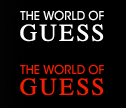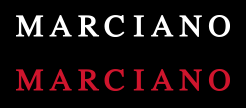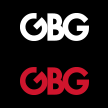CONFLICT MINERALS POLICY
Guess?, Inc. Conflict Minerals Policy Adopted January 28, 2014. This document contains our policy regarding the use of conflict minerals in our products. As used in this policy, “GUESS?,” “we,” “its,” “us” and “our” refers to Guess?, Inc. and its consolidated subsidiaries. This policy will be reviewed and updated as needed. Please also see our other policies relating to corruption, money-laundering, bribery, employment practices, health and safety and other important topics, including our Code of Ethics and Vendor Code of Conduct. Regulatory Overview There has been increased awareness of violence and human rights violations in connection with the mining of certain minerals from locations in the Democratic Republic of the Congo (the “DRC”) and its adjoining countries. In July 2010, President Obama signed into law the Wall Street Reform and Consumer Protection Act, also known as the Dodd-Frank Act. On August 22, 2012, the Securities and Exchange Commission (the “SEC”) adopted a conflict minerals rule (the “Conflict Minerals Rule”) as mandated by Section 1502 of the Dodd-Frank Act. The Conflict Minerals Rule is intended to reduce a significant source of funding for armed groups that are committing human rights abuses in the DRC. To the extent that “conflict minerals” are necessary to the functionality or production of products that GUESS? contracts to manufacture, we are required to engage in a reasonable country of origin inquiry to determine whether the conflict minerals originated in the DRC or one of the other covered countries under the Conflict Minerals Rule. To the extent that the products that we contract to manufacture contain conflict minerals that are necessary to their functionality or production, we are required to make certain disclosures on Form SD, a new SEC form. Additional due diligence and disclosure obligations are triggered to the extent that the conflict minerals are from a covered country or we are unable to determine the source of the conflict minerals. “Conflict minerals” are defined in the Conflict Minerals Rule as cassiterite, columbite-tantalite (coltan), gold, wolframite and three specified derivatives: tin; tantalum; and tungsten. In addition to the DRC, the covered countries contemplated by the Conflict Minerals Rule are: (1) Angola; (2) Burundi; (3) Central African Republic; (4) the Republic of the Congo; (5) Rwanda; (6) South Sudan; (7) Tanzania; (8) Uganda; and (9) Zambia. GUESS? Policy Statement GUESS? takes its obligations under SEC and other regulations seriously. GUESS? also has adopted this policy as part of our efforts to encourage our suppliers to respect human rights and not contribute to conflict. GUESS? does not directly source conflict minerals from mines, smelters or refiners, and is in most cases many levels removed from these market participants. We therefore require the cooperation of our suppliers in the implementation of this policy and in enabling GUESS? to meet its SEC compliance obligations. Supplier Requirements Suppliers who supply or manufacture components, parts or products containing conflict minerals are expected to source those minerals from socially and environmentally responsible sources that do not directly or indirectly contribute to conflict. Without limiting the foregoing, suppliers are expected to directly and indirectly source conflict minerals only from sources that do not directly or indirectly finance or benefit “armed groups” (as that term is defined in the Conflict Minerals Rule) in the DRC or another covered country. This policy applies to conflict minerals contained in components or parts of products supplied to or manufactured for GUESS?, irrespective of whether the supplier or manufacturer of the product has manufactured or provided the specifications for the particular component or part. In furtherance of this policy, suppliers are expected to:
Suppliers also are encouraged to support industry efforts to enhance traceability and responsible practices in global minerals supply chains. GUESS? reserves the right to request from any supplier at any time such information, certifications and documentation as it shall deem necessary to monitor or assess compliance with this policy. Assessing and Responding to Identified Risks GUESS? believes in establishing and maintaining long-term relationships with suppliers whenever possible. If we determine that a supplier may be violating this policy, we may require them to commit to and implement a corrective action plan within a reasonable timeframe. Continued failure to adhere to GUESS? policies and refusal to address issues of concern may lead to termination of our business relationship with the supplier. Nothing contained in this policy shall be interpreted to preclude GUESS? from terminating any supplier relationship at any time for any reason. Grievance Mechanism and Reporting Suppliers are encouraged to in the first instance contact their regular sourcing channel at GUESS? if they have any questions concerning this policy. Concerns regarding this policy, or violations, can also be reported as follows: By email to: |






